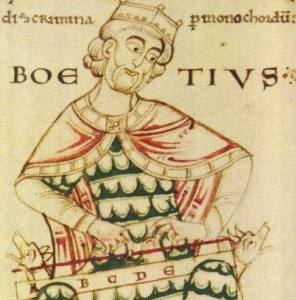
Performing Lost Songs of the Early Middle Ages
The Project: How research at Cambridge Faculty of Music is bringing lost songs back to life
Research from the Faculty of Music is bringing to life songs that have been lost to scholars for centuries. A collaboration taking place in April with Sequentia will culminate in a public concert marking the first performance of most of these songs in around 1000 years.
Some two centuries after Isidore’s lament, a form of practical musical notation (‘neumes’ ) was introduced in Western Europe. These neumes indicated melodic direction and details of vocal delivery without specifying every pitch, serving as a mnemonic alongside oral transmission. But today they pose a problem – the traces of lost song repertories survive, but not the aural memory that once supported them. We know the contours of the melodies and many details about how they were sung, but not the precise pitches that made up the tunes.
Hundreds of Latin songs were recorded in neumes from the ninth through to the thirteenth centuries. These include settings of the classics (purple passages from Horace and Virgil among others), late antique authors (including Boethius and Martianus Capella) and medieval texts from laments through to love songs. Until recently, the pitches for only a handful of songs had been recovered.
But research conducted at the University of Cambridge over the last two decades by Sam Barrett has made a breakthrough by identifying the techniques used to set particular verse forms. The scholarly groundwork involved in gathering together surviving notations and piecing together principles of musical setting culminated in 2013 in a two-volume study of over one hundred neumatic notations for Boethius’ On the Consolation of Philosophy.
What remained was the final leap into sound. This required a second stage of collaboration with experienced performers who had built up their own working memory of medieval song. The ideal collaborator was found in Benjamin Bagby, co-founder of Sequentia and director of a Lost Songs Project that has already brought to life several parallel medieval song repertories from Beowulf through to the Carmina Burana.
Over the last two years, Bagby and Barrett have experimented with realisations, testing scholarly theories against the practical requirements of hand and voice, exploring the possibilities offered by accompaniment on period instruments, and experimenting with the potential of performance to deliver dramatic readings of the text. Working step by step through multiple realisations, they have arrived at reconstructions that respect the complementary demands of scholarship and performance.
Three events taking place towards the end of April at Pembroke College will present the first fruits of this collaboration to the general public. The focus of all three events will be on reconstructing melodies for the poetic portions Boethius’ Consolation of Philosophy as recorded on a rediscovered leaf of the eleventh-century Cambridge Songs Manuscript that is now housed in the University Library.
The week’s events will be:
1) a concert at 8pm on Saturday 23 April in Pembroke College Chapel, in which Benjamin Bagby and two other members of Sequentia will present a programme entitled Songs of Consolation from Boethius to the Carmina Burana. Tickets can be purchased here.
2) a workshop from 2-4pm on Friday 22 April in the Old Library, Pembroke College, for early music singers, flautists and harpists. Discover the techniques that lie behind reconstructions and explore ways in which modern musicians can delivery effective and informed performances of early medieval song! To sign up, fill out the form here by 8 April.
3) an open rehearsal from 2-4pm on Wednesday 20 April in the Old Library, Pembroke college, allowing insight into the working methods employed in shaping melodic realisations. To reserve a seat, email performinglostsongs@gmail.com
This collaborative project is supported by a British Academy/Leverhulme Small Research Grant, the Cambridge Humanities Research Grant Scheme, Pembroke College, the Faculty of Music and the Cambridge Centre for Musical Performance Studies (CMPS). Benjamin Bagby will be a Visiting Artist at the CMPS for the duration of his stay.



